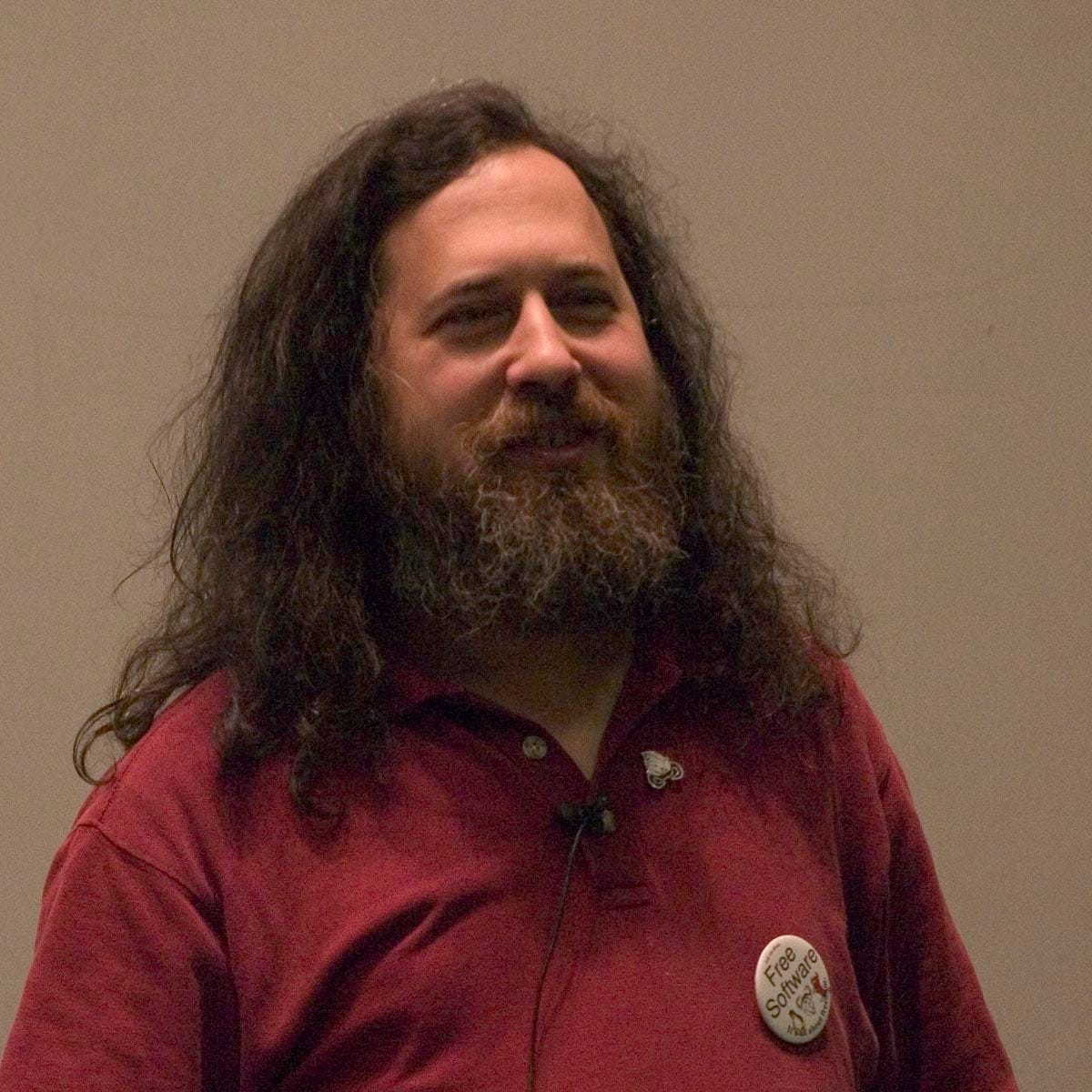Richard Stallman: A Comprehensive Biography
Early Life and Education
Richard Matthew Stallman, often known by his initials RMS, was born on March 16, 1953, in New York City. He demonstrated an early aptitude for mathematics and science, attending a Columbia University-run program for gifted high school students and excelling in his studies. Stallman enrolled at Harvard University in 1970, where he pursued a degree in physics, graduating magna cum laude in 1974. During his time at Harvard, he became known for his exceptional programming skills, which he further honed as a programmer at the MIT Artificial Intelligence Laboratory.
Career and Contributions
After graduating from Harvard, Stallman became a full-time staff member at the MIT AI Lab. It was here that he encountered the proprietary nature of software and the restrictions it imposed on users' freedom. In response to this, Stallman launched the GNU Project in 1983, with the goal of creating a free Unix-like operating system. This project was the foundation of what would later become known as the Free Software Movement. The name GNU stands for "GNU's Not Unix," reflecting the project's goal of developing a free operating system that was Unix-compatible but free from proprietary constraints.
Stallman founded the Free Software Foundation (FSF) in 1985 to support the GNU Project and advocate for the freedoms of computer users. The FSF promotes the universal freedom to study, distribute, create, and modify computer software, with an emphasis on the ethical and moral aspects of software development.
One of Stallman's most significant contributions is the GNU General Public License (GPL), which he authored. The GPL ensures that software licensed under it remains free and open, preventing proprietary restrictions and encouraging collaboration and sharing. The GPL has become one of the most widely used free software licenses in the world.
GNU and Linux
The GNU Project made significant progress, but by the early 1990s, it still lacked a kernel, the core component of an operating system. This gap was filled by Linus Torvalds' creation of the Linux kernel in 1991. When combined with the GNU software, this formed a complete, free operating system, commonly referred to as GNU/Linux. This collaboration significantly advanced the Free Software Movement, and GNU/Linux systems are now widely used around the world, particularly in servers and supercomputers.
Advocacy and Philosophy
Stallman is known for his strong stance on software freedom and his insistence on the ethical implications of software development. He argues that software should respect users' freedom and community, and he distinguishes between "free software" (as in freedom) and "open source" software, which he views as a less principled, more business-friendly approach to software development.
He has written numerous essays and delivered countless speeches worldwide, advocating for free software and warning against the dangers of proprietary software. His book, "Free Software, Free Society: Selected Essays of Richard M. Stallman," is a collection of his writings that outline his philosophy and the principles of the Free Software Movement.
Recognition and Controversies
Stallman has received numerous awards and honors for his work, including the ACM Grace Murray Hopper Award, the MacArthur Fellowship, and the EFF Pioneer Award. However, his career has not been without controversy. Stallman has been criticized for his uncompromising and often abrasive style, as well as his views and statements on various social and political issues. In 2019, he resigned from his positions at MIT and the FSF following backlash over comments he made regarding a controversial case.
Legacy and Impact
Despite controversies, Stallman's impact on the world of software and digital rights is undeniable. His vision of software freedom has influenced generations of programmers and activists, and the principles he championed continue to shape discussions about software ethics and user rights. The GNU Project and the FSF remain central to the free software community, and the GPL has become a cornerstone of software licensing.
Stallman continues to be an active advocate for free software, dedicating his life to ensuring that software serves the users' interests rather than those of corporations. His work has laid the groundwork for a more open, collaborative, and ethical approach to software development, and his legacy as a pioneer of the Free Software Movement endures.




